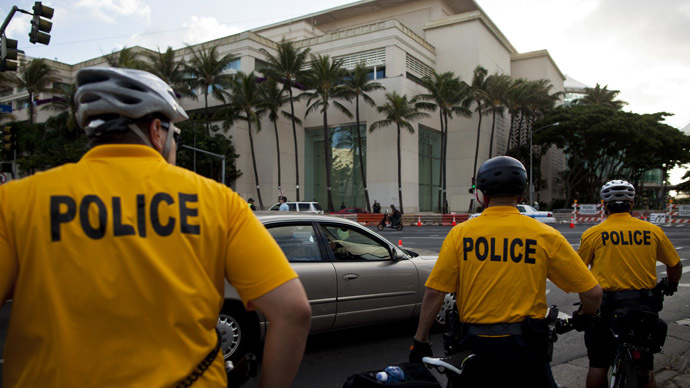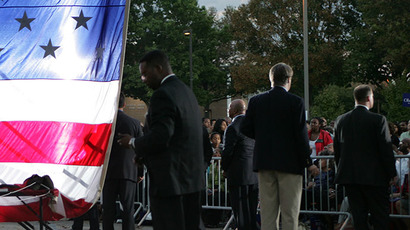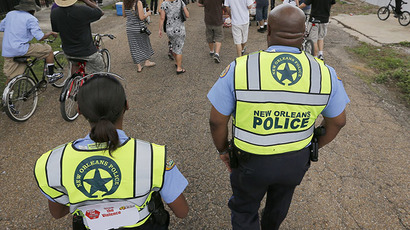Hawaii may preserve law that allows undercover police to have sex with prostitutes

The Honolulu Police Department has convinced Hawaii lawmakers to preserve a controversial exemption in state law that allows undercover officers to have sex with prostitutes during investigations.
Law enforcement claims the legal protection is needed to run successful undercover stings against pimps, human traffickers, and those soliciting sex. Critics of the exemption, including human trafficking experts, say it is an unnecessary provision and that it could further victimize sex workers while exacerbating their distrust of police officers.
The exemption surfaced recently, as Hawaii lawmakers are considering a bill to crack down on pimps and johns while continuing to classify the act of selling sex as a “petty misdemeanor,” AP reported.
The original language of the bill dropped the police exemption. Yet upon police testimony urging a reversal, the bill was amended to preserve the provision, according to AP.
The bill has passed the state House and will go before a state Senate committee on Friday.
Police have not divulged how or even if this provision is used, but they assured legislators that internal policies are in place to bar officers from abusing the loophole. During legislative testimony, police said the provision is needed to protect the integrity of investigations.
"The procedures and conduct of the undercover officers are regulated by department rules, which by nature have to be confidential," Honolulu Police Maj. Jerry Inouye told the House Judiciary Committee. "Because if prostitution suspects, pimps and other people are privy to that information, they're going to know exactly how far the undercover officer can and cannot go."
Democratic Rep. Karl Rhoads, chairman of the Judiciary committee, said police testimony convinced him to restore the exemption.
"It's a really murky area," said Rhoads, whose district – Honolulu’s Chinatown – has long been a center for street prostitution in the state’s largest city.
"I was reluctant to interfere in something that they face all the time. If they think it's necessary to not have it in the statute, this is one area where I did defer to them and say, 'I hope you're not having sex with prostitutes.'"
Experts and sex worker advocates say the exemption is a dangerous, “antiquated at best” provision that places often vulnerable sex workers at the mercy of further abuse.
"It doesn't help your case, and at worst you further traumatize someone. And do you think he or she is going to trust a cop again?" said Derek Marsh, an expert on human trafficking who trains police officers on how to handle such cases.
Advocates are trying to now piece together whether similar exemptions exist in state law or Honolulu Police Department policy. Regardless, those who have helped sex workers move on from prostitution say such a policy is asking to be abused.
"Police abuse is part of the life of prostitution," said Melissa Farley, executive director of Prostitution Research and Education in California. She added that in even in places without the exemption, the women her organization works with have said they were often forced to give sexual favors to police to avoid arrest.
There have been recent incidents of police sexually abusing sex workers in the US. In separate cases taking place in Philadelphia and West Sacramento, former police officers are on trial for raping sex workers. Last year in Massachusetts, a former officer pleaded guilty to extorting sex from prostitutes after threatening to take them into custody.
Critics of the exemption also say the belief that the police need the provision to conduct investigations doesn’t add up, and that further victimization of a sex worker should negate any such provision.
"I can understand you're in a drug den, and you have a gun to your head and someone says 'snort this,'" said Lauren Hersh, a former prosecuting attorney now working on trafficking issues for women’s advocacy group Equality Now. But the Hawaii exemption is "so dissimilar from that circumstance on so many levels."
The Honolulu Police echoed its anti-abuse policies and procedures in a statement to AP.
"All allegations of misconduct are investigated and the appropriate disciplinary action taken," said Michelle Yu, a Honolulu police spokeswoman.
Disclosure laws in Hawaii for police misconduct, though, make it almost impossible to know if an on-duty officer has faced discipline or even accusations for having sex with a prostitute.
Yu said officers involved in prostitution investigations have not been accused of sexual misconduct in recent memory, though a patrol officer was fired in 2011 after being convicted of sexually assaulting a sex worker, she said.
Hawaii is the only US state that permits officers to engage in such activity.














